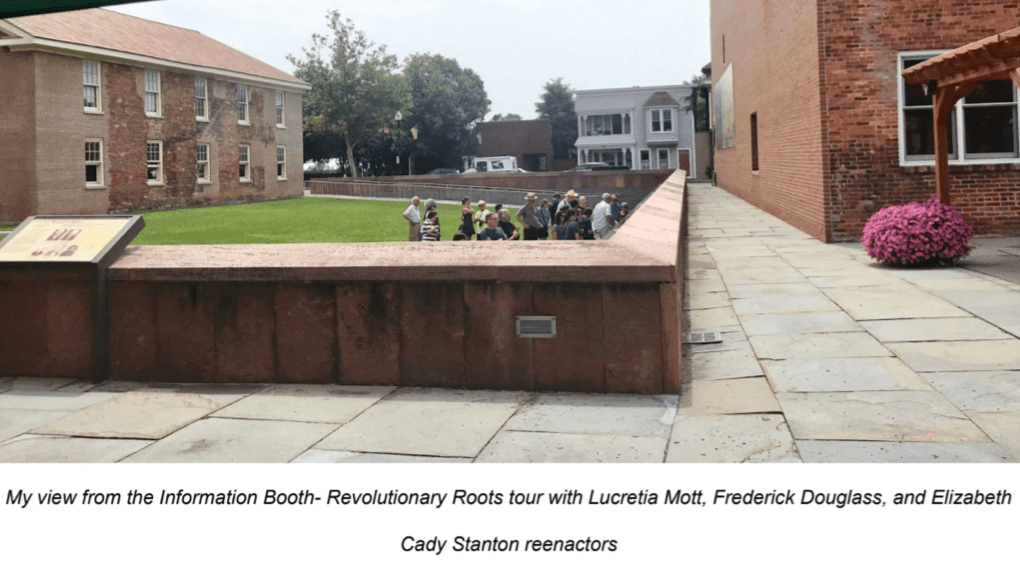By Victoria Elliott
A highlight from the second half of July was the Women’s Rights National Historical Park’s commemoration of the First Women’s Rights Convention. This year’s theme was “Back to Our Roots,” so the majority of the weekend’s events focused on the factors that led to the early women’s rights movement. Every year Women’s Rights National Historical Park celebrates the anniversary of the 1848 First Women’s Rights Convention. This year the celebration took place on the 19th, 20th, and 21st of July. My primary task for convention days was to operate the Information Booth. The weather forecast predicted menacingly hot temperatures, so everyone was briefed on safety in the heat and how to recognize and assist someone suffering from heat stroke. Luckily there were no incidents over the weekend.
I enjoyed working at the Information Booth because I got to meet new people. Some came expressly for Convention Days weekend, while others just happened to be visiting during the commemoration. One interaction that I really valued occurred on the first day of the Convention. A woman stopped by the booth before entering the Visitor Center, and after learning that I was an intern, asked me some really great questions about how my time at the Park has impacted and inspired me. I had the opportunity to ask her questions in return, and we both parted ways with smiles on our faces. Our interaction reminded me that in touring the Park visitors can enter a dynamic relationship with history, affecting the visitor’s perspective on the future and their place within it.
Although I was working the event, I had the opportunity to attend some of the speaker’s talks. On the 19th, I attended Dr. Sally Roesch Wagner’s talk “A Most Important Conversation- Susan Goodier’s presentation “Votes for Women: Why Did it Take So Long?” in the Wesleyan Chapel She discussed the issue of racism within the women’s rights movement following the Civil War and issues of accountability in relation to the past and the present. Dr. Roesch Wagner shared that she considers herself “anti-racist and a recovering racist.” This struck me as a great way of addressing the issues of white privilege. The phrasing acknowledges racism and white privilege while expressing commitment to working against those injustices on personal and public levels.

